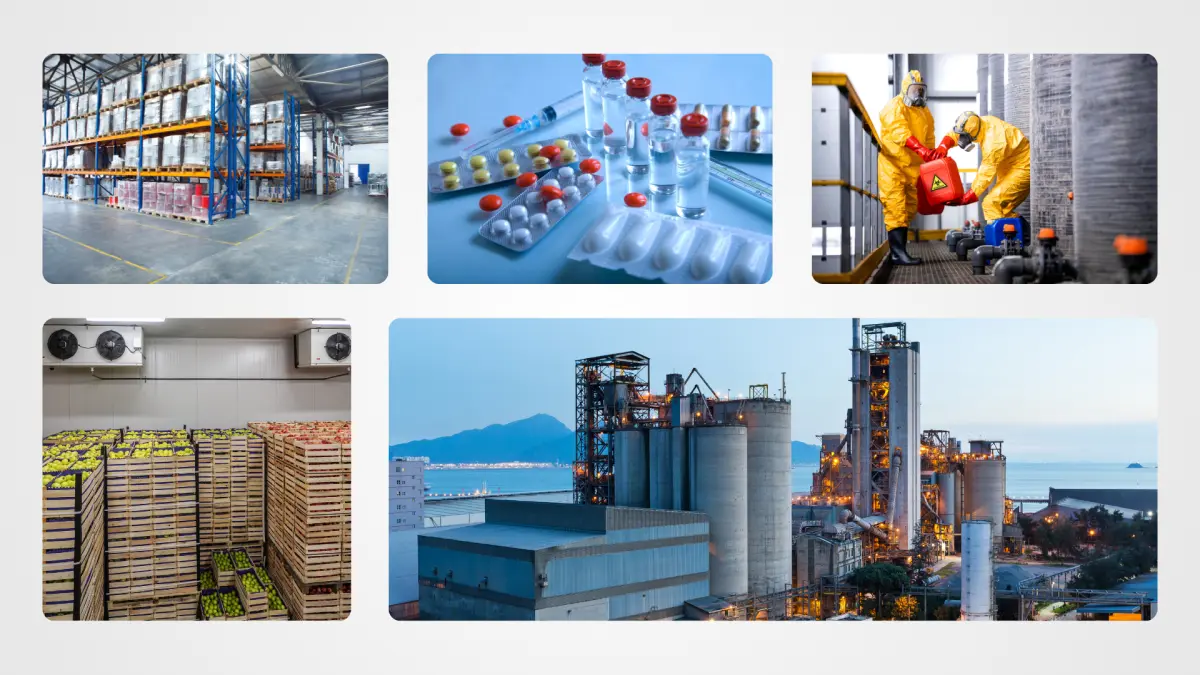In today’s fast-paced and competitive business landscape, efficiency and adaptability are critical. Every business, regardless of size or sector, strives to streamline operations, improve interdepartmental collaboration, and make informed decisions. Achieving these goals ensures growth and long-term success. Enterprise Resource Planning (ERP) systems have emerged as an indispensable tool for organizations aiming to optimize processes, enhance productivity, and manage resources effectively.
This comprehensive guide explores how various industries utilize ERP systems to address unique challenges and gain a competitive edge. Let’s dive in.
ERP for Manufacturing:
The manufacturing sector is the backbone of economies worldwide. Digital enhancement through ERP systems has revolutionized this industry by integrating processes and enhancing operational efficiency.
Key Benefits:
- Secure Data Management: Protect sensitive data and ensure accessibility only to authorized personnel.
- Real-Time Inventory Control: Monitor stock levels and prevent production delays caused by shortages.
- Automated Workflows: Streamline production schedules and reduce manual interventions.
- Supply Chain Optimization: Simplify supplier interactions and improve order fulfillment.
- Quality Assurance: Maintain high-quality standards with real-time checks and compliance tools.
Manufacturing companies leveraging ERP systems report significant gains in profitability, customer satisfaction, and market share. Our Manufacturing software is the best manufacturing software for small business.

ERP for Food Services:
The industry that provides food services—including restaurants and catering businesses—faces unique challenges such as inventory spoilage, labor costs, and fluctuating customer demands. An ERP system helps manage these complexities efficiently.
Key Benefits:
- Recipe and Inventory Management: Track ingredients and optimize recipe costs.
- Vendor and Supplier Tracking: Ensure timely delivery of high-quality raw materials.
- Food Waste Reduction: Minimize wastage through better inventory planning.
- Seamless POS Integration: Streamline billing and payment processes.
- Staff Management: Schedule shifts effectively and reduce labor costs.
Restaurants implementing ERP systems have seen improved service quality and customer satisfaction while reducing operational overhead.

ERP for Construction:
The construction industry’s dynamic nature requires precise planning, resource management, and adaptability. ERP systems provide the tools needed to overcome these challenges.
Key Benefits:
- Cost Estimation and Budgeting: Accurately estimate project costs and avoid budget overruns.
- Advanced Project Management: Monitor progress and allocate resources efficiently.
- Automated Reporting: Generate real-time reports for better decision-making.
- Improved Communication: Enhance collaboration across teams and stakeholders.
- Risk Mitigation: Anticipate and address potential project risks effectively.
ERP systems enable construction companies to complete projects on time and within budget, enhancing their reputation and profitability.

ERP for Retail:
ERP for Retail operates in a highly competitive environment where customer satisfaction and operational efficiency are paramount. ERP systems provide the tools needed to stay ahead.
Key Benefits:
- Real-Time Inventory Updates: Ensure products are always in stock.
- Simplified Pricing and Discounts: Manage promotions and pricing with ease.
- Improved E-Commerce Integration: Streamline online and offline sales.
- Centralized Data Management: Access customer and sales data in one place.
- Enhanced Customer Management: Improve loyalty programs and personalized services.
Retailers constantly use ERP System and the response is positive that they really fell enjoy to use this system. This system reduces their efforts and robust their retail process.

ERP for Healthcare:
The healthcare industry’s fragmented systems often lead to inefficiencies and higher operational costs. ERP systems address these issues by integrating data and workflows across departments.
Key Benefits:
- Patient Records Management: Centralize medical histories and treatment plans.
- Operational Cost Reduction: Streamline administrative tasks and reduce redundancies.
- Enhanced Financial Planning: Monitor budgets and forecasts more effectively.
- Simplified Reporting: Generate detailed performance and compliance reports.
- Data Accessibility: Provide authorized personnel with real-time data access.
By adopting ERP systems, healthcare organizations can improve service quality and patient outcomes.

ERP for IT Companies:
IT companies face complex challenges, from project management to resource allocation. ERP systems provide the agility needed to stay ahead in a fast-evolving industry.
Key Benefits:
- Standardized Workflows: Ensure consistent and efficient processes across teams.
- Enhanced Collaboration: Facilitate communication and data sharing.
- Cloud Security: Protect sensitive data with robust cybersecurity measures.
- Automation: Reduce manual tasks and increase productivity.
- Insightful Analytics: Monitor performance and make data-driven decisions.
ERP systems help IT companies scale operations and deliver exceptional client services.
ERP for Hospitality:
The hospitality industry’s success hinges on seamless service delivery. ERP System changed the way of workflow functionality by bringing a unified system that combined all processes on a single platform.
Key Benefits:
- Streamlined Reservations: Simplify booking processes for guests and staff.
- Real-Time Monitoring: Track business metrics around the clock.
- Cost Reduction: Optimize operational expenses and minimize wastage.
- Centralized Management: Oversee multiple properties from a single platform.
- Enhanced Customer Service: Deliver personalized experiences to guests.
Hotels and resorts using ERP systems report higher customer satisfaction and operational efficiency.
ERP for Professional Services:
Professional services firms rely on accurate data and efficient workflows to deliver quality services. ERP systems enable them to achieve these goals.
Key Benefits:
- Flexible Reporting Tools: Generate custom reports for performance analysis.
- Task Automation: Reduce time spent on routine administrative tasks.
- Customer Relationship Management: Build stronger client relationships.
- Financial Visibility: Track expenses and revenue in real-time.
- Scalability: Adapt to business growth and changing demands.
ERP systems ensure that professional services firms can focus on delivering exceptional value to their clients.
ERP for Logistics:
The logistics and transportation sector thrives on efficiency and accuracy. ERP systems optimize these operations by offering real-time results and insights. ERP helps logistics and every department associated with them with optimized solutions.
Key Benefits:
- Inventory Control: Track stock levels and manage warehouses effectively.
- Reduced Shipping Costs: Optimize transportation routes and schedules.
- Enhanced Staff Management: Improve workforce allocation and productivity.
- Customer Experience: Ensure timely deliveries and seamless communication.
- Maintenance Scheduling: Proactively manage equipment and vehicle maintenance.
Companies in the logistics sector achieve significant cost savings and customer satisfaction with ERP systems.
Conclusion: Transform Your Business with ERP
ERP systems are a game-changer for businesses across industries. By integrating processes, enhancing efficiency, and providing actionable insights, these systems empower organizations to thrive in a competitive market. From manufacturing to healthcare, retail to logistics, ERP solutions deliver tangible benefits that drive growth and innovation.
If you’re curious about how ERP can transform your business, our team is here to guide you. Contact us today for personalized ERP consulting and implementation services tailored to your needs.

